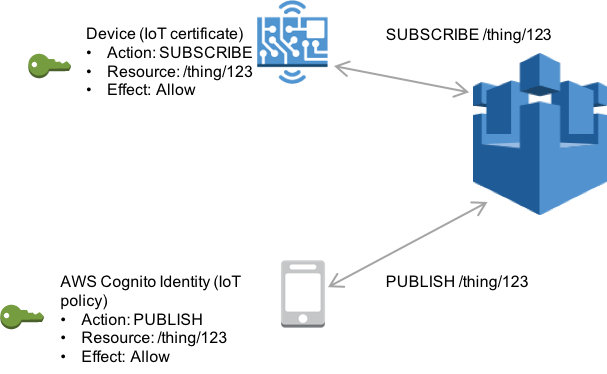Amazon Cognito identities
Amazon Cognito Identity enables you to create temporary, limited privilege Amazon credentials for use in mobile and web applications. When you use Amazon Cognito Identity, create identity pools that create unique identities for your users and authenticate them with identity providers like Login with Amazon, Facebook, and Google. You can also use Amazon Cognito identities with your own developer authenticated identities. For more information, see Amazon Cognito Identity.
To use Amazon Cognito Identity, define an Amazon Cognito identity pool that is associated with an IAM role. The IAM role is associated with an IAM policy that grants identities from your identity pool permission to access Amazon resources like calling Amazon services.
Amazon Cognito Identity creates unauthenticated and authenticated identities. Unauthenticated identities are used for guest users in a mobile or web application who want to use the app without signing in. Unauthenticated users are granted only those permissions specified in the IAM policy associated with the identity pool.
When you use authenticated identities, in addition to the IAM policy attached to the identity pool, you must attach an Amazon IoT policy to an Amazon Cognito Identity. To attach an Amazon IoT policy, use the AttachPolicy API and give permissions to an individual user of your Amazon IoT application. You can use the Amazon IoT policy to assign fine-grained permissions for specific customers and their devices.
Authenticated and unauthenticated users are different identity types. If you don't attach an Amazon IoT policy to the Amazon Cognito Identity, an authenticated user fails authorization in Amazon IoT and doesn't have access to Amazon IoT resources and actions. For more information about creating policies for Amazon Cognito identities, see Publish/Subscribe policy examples and Authorization with Amazon Cognito identities.
